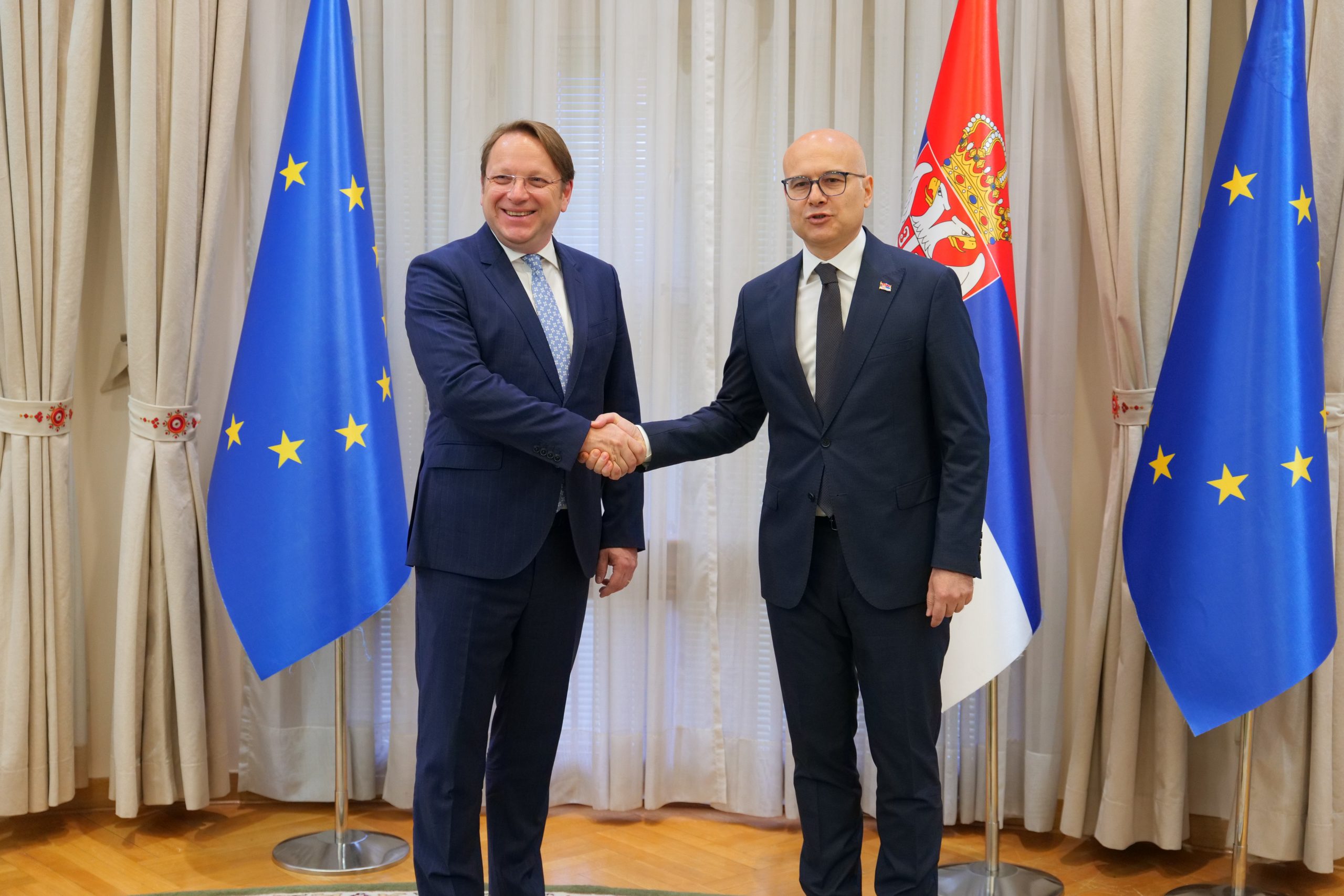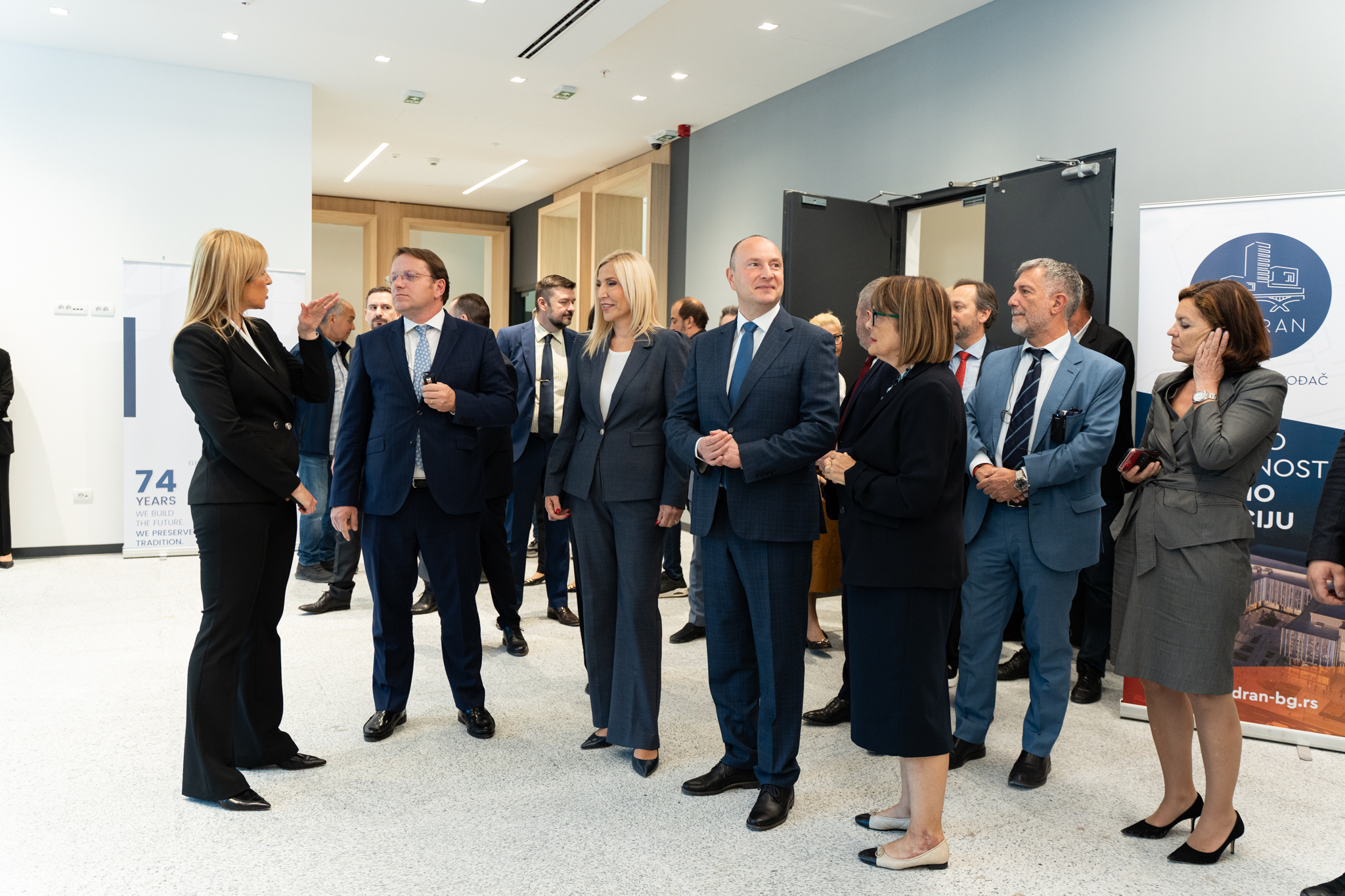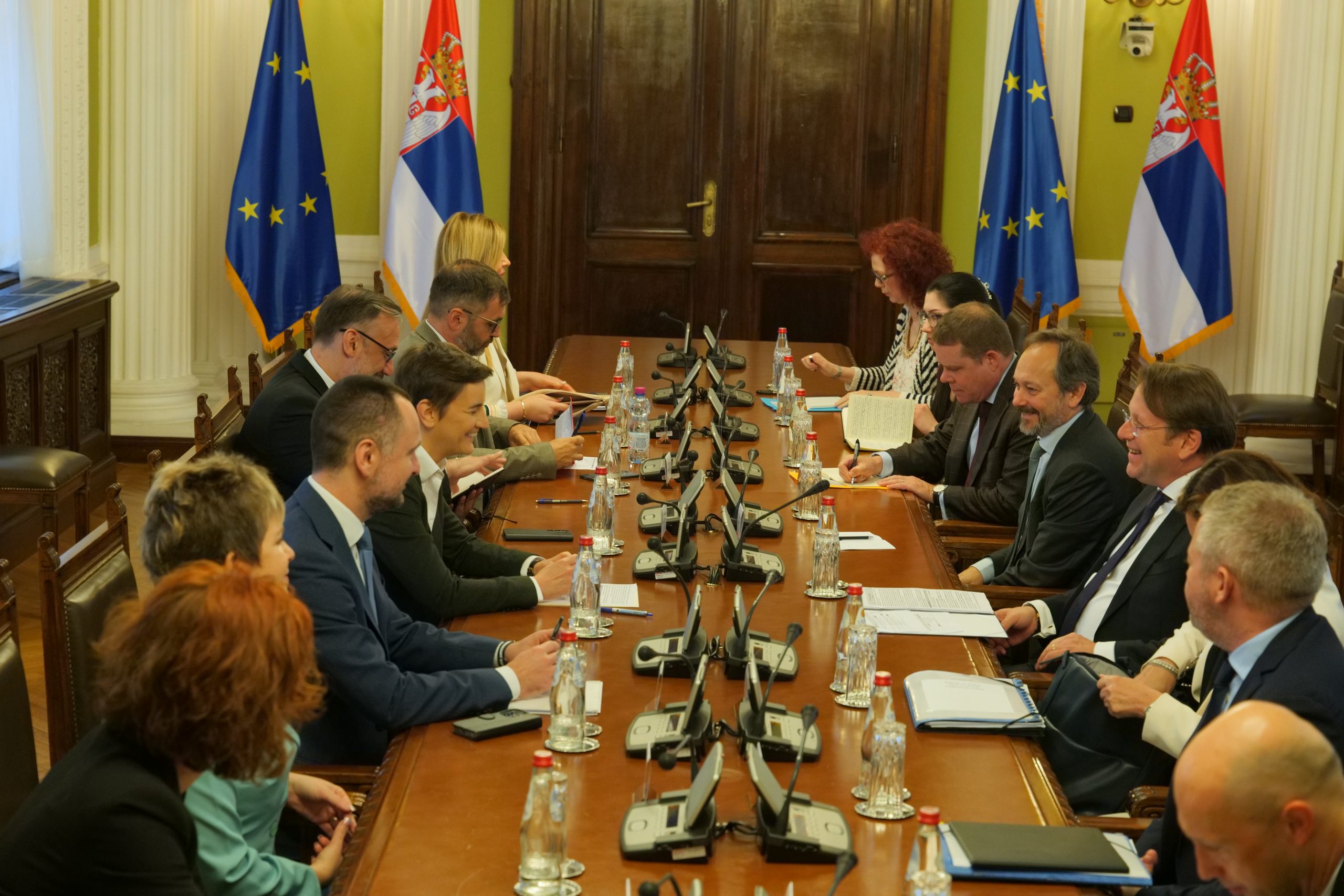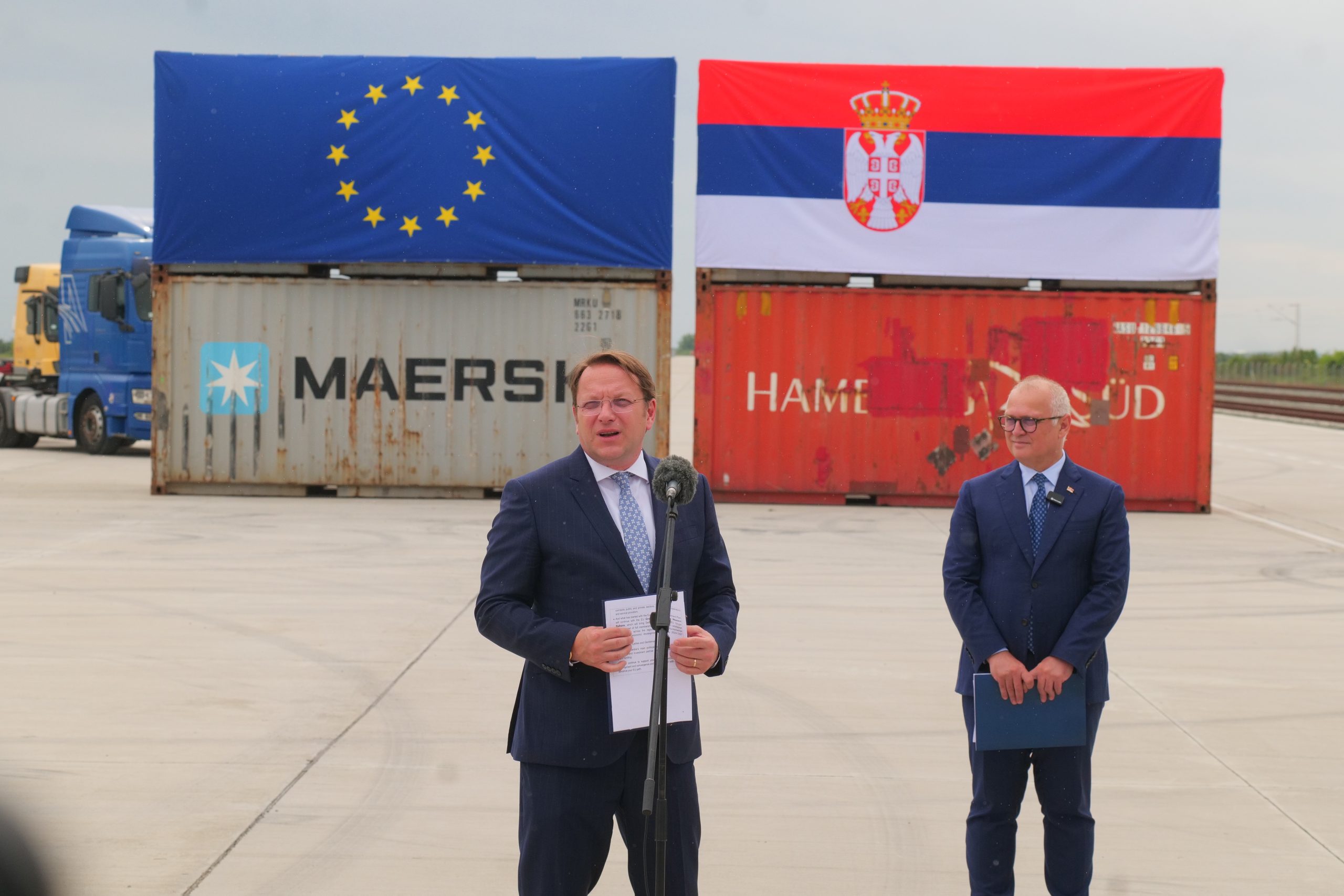On May 15, the Commissioner for Neighbourhood and Enlargement Oliver Varhelyi completed his three-day visit to Serbia. Upon his arrival, the Commissioner met with the President of the Republic of Serbia, Aleksandar Vučić, with whom he discussed the EU enlargement process and the implementation of the New Growth Plan and the Reform Agenda for the Western Balkans.
During the visit, the Commissioner met with the new Prime Minister and several minister of the Government of Serbia – Minister of Finance, Minister of Foreign Affairs, Minister of Internal Affairs, Minister of European Integration, Minister of Justice, Minister of Mining and Energy and Minister of Construction and Transport. The Commissioner congratulated them on their appointment, expressed the hope that Serbia will remain committed to its European path and encouraged the new government to take advantage of the current momentum of enlargement and implement the necessary reforms, with the support of the EU.

Commissioner Varhelyi added that the EU recently adopted a 6 billion EUR Growth Plan to support partners from the Western Balkans. In this context, he welcomed Serbia’s work on the reform agenda and reiterated the opportunities it offers to Serbia in terms of socio-economic development, inclusion in the EU single market and accession negotiations.
The Commissioner reiterated that the Economic and Investment Plan worth 30 billion EUR is already producing results. The plan is to improve the connectivity of transport, energy and digital infrastructure in the Western Balkans. The EU has already mobilised more than half of the package, investing almost 6.2 billion EUR in Serbia, which will bring tangible benefits to citizens and the economy. For example, the EU finances the modernisation of Serbian railways, providing a financial package worth 2.2 billion EUR for the Belgrade – Niš high-speed rail line alone.

During the visit, Commissioner Varhelyi attended the signing of two new agreements on grant aid for biomass – which will help Serbia’s further transition towards sustainable energy – as well as the signing of the Memorandum of Understanding for the establishment of the European Council of Chambers of Commerce and Business Associations in Serbia. He also visited the final stage of the construction of the Palace of Justice in Novi Sad and the Intermodal Terminal in Batajnica – two projects financed by the EU, the aim of which is to provide the prerequisites for more efficient and high-quality work of the judiciary, i.e. the modernisation of the transport system of Serbia.

The Commissioner ended his visit with a series of meetings in the National Assembly of Serbia, where he met with the new National Assembly Speaker Ana Brnabić, as well as representatives of parliamentary groups from both the ruling coalition and the opposition.
During the visit, the Commissioner also met with the representatives of the Hungarian minority in Subotica.




